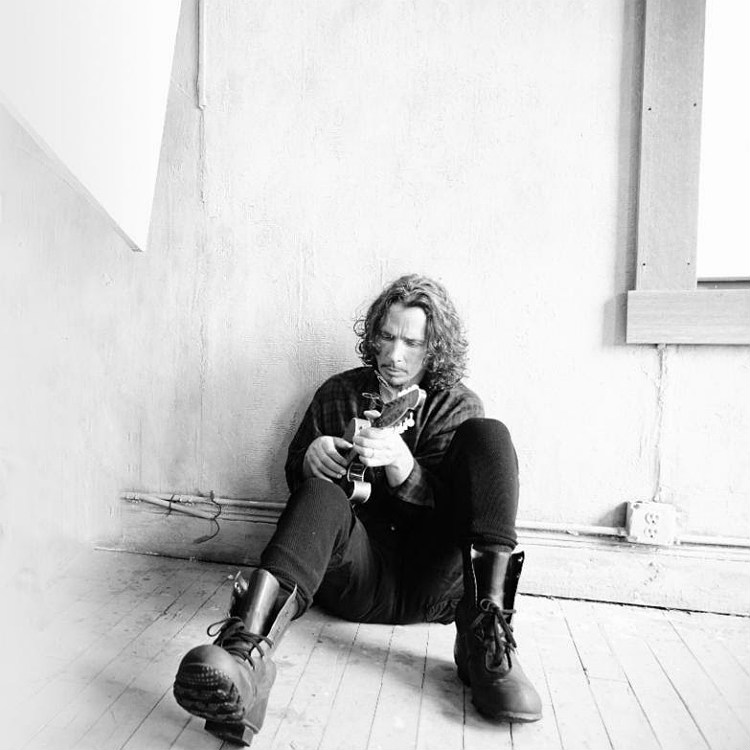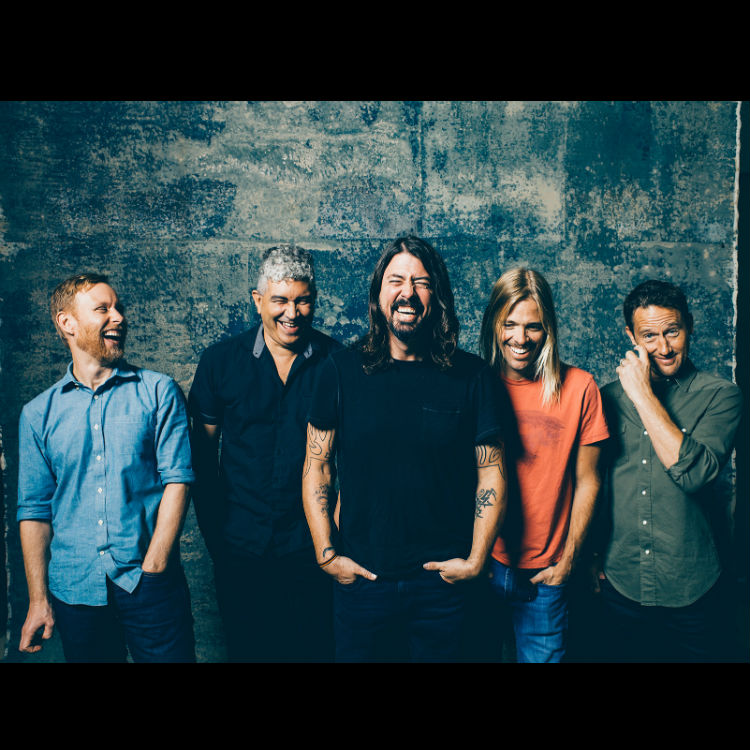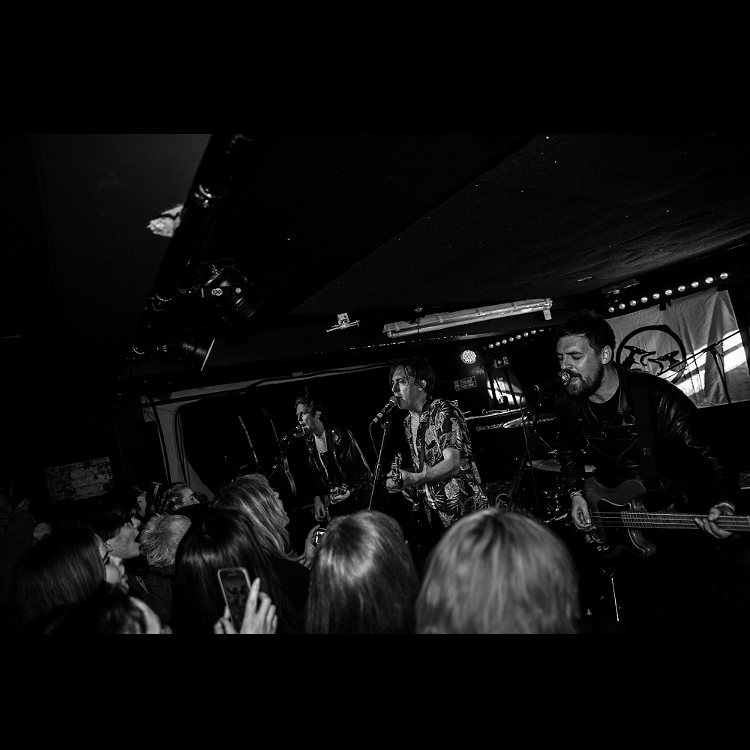 Photo: Press
Photo: Press
Natural progression is something that is always going to happen. In fact it’s needed in order to fit in with the changing in technology, popular culture and social climate. Over the years however dilution has often been mistaken for progression when it comes to music. ‘Dumbing down’ is a real thing. Whether it’s pop rock, trap rap or R&B dance, the line between credible experimentation and making a quick buck has gotten thin, very thin.
One genre in particular that has suffered a lot more than most at the hands of dumbing down is R&B. Once one of the most popular genres in music, it grew from a 1920s jazz and blues hybrid - after which in the late 1940s Jerry Wexler actually coined the term rhythm and blues - to a blend of Hip Hop soul at its height of popularity in the 1990s. Today the authentic representation of R&B within the mainstream is best upheld by the likes of Miguel, BJ the Chicago Kid, Trey Songz, Solange Knowles and Ro James. Of course some of the greats are still out here flying the flag - Raphael Saadiq, Jon B, Ginuwine to name but a few - but it’s a new day and trap soul and R&B dance reigns supreme.
Sitting down with Gigwise ahead of his show at Hoxton Square’s Bar & Kitchen, Ro James - whose 2016 single ‘Permission’ is a certified R&B classic - discusses the current state of R&B, whose fault it is the genre is where it is, his Grammy experience and how he views the academy’s knowledge of R&B and what he has cooking for the future.
The last time we spoke was before the Grammys. You were nominated for Best R&B Performance for ‘Permission’, your first nomination in fact. Did you go to the actual awards?
Ro James: I did.
So how was that experience and in your opinion how seriously does the academy view R&B?
RJ: How was it? For one it was an amazing experience. It was amazing to be nominated for my first album, my first single. All of that is amazing.
[As for the academy] I feel like they don’t know what R&B is. I don’t feel like they understand the category or what it means or even what it feels like, what it sounds like. I feel like some of the people in the category weren’t really R&B and so it put me in a difficult position to win because my music for this album was R&B. I felt like it was a classic R&B album that should have gotten more attention. It should have even been nominated in the R&B Album of the Year category, but it’s fine.
They don’t even mention the R&B category on TV. They do it in the pre-show and nobody sees it. They announce it and then everybody leaves and goes to the big ceremony. So I feel like R&B is really looked at as a dying genre which is very sad.
Whose fault is that?
RJ: I think that it’s everyone’s fault. I think it’s everyone’s fault for allowing - and I don’t wanna call music mediocre but I wanna say mediocre - so, mediocre music in. I think it’s everyone’s fault for accepting that and listening to it, blasting it and requesting it and playing it in the clubs and making everyone feel like that’s the way to win with music which then pushed R&B out. I’ve heard so many times people say: “There’s no money in R&B, no one believes in it.” They give you crumbs to promote it because they don’t really believe in it, all of their money is invested in rap music, which is the culture right now but I feel like we need the balance man. I feel like even a lot of the singers are trying to do rap music and trap.
It feels like the turning point where people started to look at R&B differently was when R&B heavyweights such as Usher, Chris Brown and Ne-Yo started making dance music with an R&B flavour. What’s your opinion on that?
RJ: I believe that was because they saw a market for it.
And the money?
RJ: Right, and money. But then it kinda shifted because everyone left. The ones you looked at for R&B left and did something else so it was like, what is the genre? There is no genre.
Surely that then left it open for guys like yourself and Miguel to come in and…
RJ: I mean yes it leaves it open but it also makes it very hard too because we have to work ten times as hard just to show people that this is real shit, this is real R&B. And not even R&B, this is real music. Singing, we’re adding instrumentation, we’re adding sounds, we’ve been influenced by so many different genres and styles…
Talent?
RJ: Yes! Talent. Raw talent that you just can’t go and put it on a computer and make something. You have to have the talent to do it and I feel like it’s changed. But I do feel like there are the Miguel’s, the BJ the Chaicago Kid’s, the Anderson .Paak’s - who brings a different feeling to R&B but he’s still R&B. It’s just all about the soul.
You just mentioned that people view it differently and there’s no money in it but you just did the Mary J. Blige and Maxwell tour and that looked pretty damn successful. So there’s still a market for it, right?
RJ: You wanna know what’s crazy? I did the Mary J. Blige and Maxwell tour and I loved it and I learnt so much from them to take on my own tour but their audience is way older than mine. Their audience is maybe 40-years-old, maybe with a sprinkling of 30s in there. So when it comes to that I feel like those people come out, they buy the music, they buy merch, they support and go to the shows. My generation, they want it for free, they don’t buy merch, they want you to give them a handout, a grab bag, it’s so different.
So you see the success of the tour but what happens is I then get pigeon-holed as an urban AC artist versus just being an artist which puts me in the genre of older soulful singers - and I’m not going to say any names because I don’t want them to get offended and think that I’m calling them older - but I’m so much more than that. I’m so much more than just urban AC. I feel like my music is genre-less, it comes across the board. It’s pop, it’s R&B, it’s soul, it’s Hip Hop. You know what I mean? It can fit on all formats.
Your record ‘Permission’ has made an impact in a big way. It’s appealed to so many demographics and people from various backgrounds. Why do you think that is?
RJ: For one it has the Willie Hutch ‘Brother’s Gonna Work It Out’ sample which is familiar to so many old school fans, you know, anyone who recognises a lot of the older school artists will hear that sample and be like, “Oh, I know that!” But then when you put that bass to it and that knock it makes it our time, right now, because that’s what we listen for now, the beat. So when you put that with a simple melody that people can sing along to and remember I think that’s a recipe for a hit.
But! What takes it over the top and makes it a classic is the lyrics and what you say in the melodies and the voice and the person behind it, and that’s what it is. I feel like it’s one that goes across the board. Anyone that has a feeling and that knows real music and appreciates 90s R&B - or any R&B in general - or just music that they can feel, they can feel that it’s real, it’s authentic, it’s organic. There’s no autotune, it’s raw. There’s no trap drums, it’s just me!
What’s next for you?
RJ: Well, the album’s been out for a year and I’m so ready to do more. So I’m gonna do some new EPs. In fact I’m gonna do a mixtape - I haven’t done a mixtape before - then I’m gonna do an EP and then I’m gonna put out the album either later this year or maybe next year.
So the mixtape is this year?
RJ: Yup.
Can you give us any info?
RJ: Nope.
Not even for your good friends at Gigwise?
RJ: Off record maybe. But nah, I’ve got some great ideas and this time I’m going to collab. I didn’t collab on the first album because I felt like… well that’s the nature of the business as everyone is respected by who they’re associated with and I don’t wanna be respected based on someone else. Respect me for my art, my music, my talent and for who I am and that’s why I didn’t put no features on my first album, which is risky in this climate.
But it shows you can stand on your own two feet.
RJ: Exactly. So now I can do whatever I want to do because I know I’m good. If I’m by myself I’m good.
Eldorado by Ro James is out now.




















